Year 3
The English curriculum is built around the three interrelated strands of language, literature and literacy. Teaching and learning programs should balance and integrate all three strands. Together, the strands focus on developing students' knowledge, understanding and skills in listening, reading, viewing, speaking, writing and creating. Learning in English builds on concepts, skills and processes developed in earlier years, and teachers will revisit and strengthen these as needed.
In Years 3 and 4, students experience learning in familiar contexts and a range of contexts that relate to study in other areas of the curriculum. They interact with peers and teachers from other classes and schools in a range of face-to-face and online/virtual environments.
Students engage with a variety of texts for enjoyment. They listen to, read, view and interpret spoken, written and multimodal texts in which the primary purpose is aesthetic, as well as texts designed to inform and persuade. These encompass traditional oral texts including Aboriginal stories, picture books, various types of print and digital texts, simple chapter books, rhyming verse, poetry, non-fiction, film, multimodal texts, dramatic performances and texts used by students as models for constructing their own work.
The range of literary texts for Foundation to Year 10 comprises Australian literature, including the oral narrative traditions of Aboriginal and Torres Strait Islander Peoples, as well as the contemporary literature of these two cultural groups, and classic and contemporary world literature, including texts from and about Asia.
Literary texts that support and extend students in Years 3 and 4 as independent readers describe complex sequences of events that extend over several pages and involve unusual happenings within a framework of familiar experiences. Informative texts include content of increasing complexity and technicality about topics of interest and topics being studied in other areas of the curriculum. These texts use complex language features, including varied sentence structures, some unfamiliar vocabulary, a significant number of high-frequency sight words and words that need to be decoded phonically, and a variety of punctuation conventions, as well as illustrations and diagrams that support and extend the printed text.
Students create a range of imaginative, informative and persuasive types of texts including narratives, procedures, performances, reports, reviews, poetry and expositions.
(source: www.australiancurriculum.edu.au)
Achievement Standard
Receptive modes (listening, reading and viewing)
By the end of Year 3, students understand how content can be organised using different text structures depending on the purpose of the text. They understand how language features, images and vocabulary choices are used for different effects.
They read texts that contain varied sentence structures, a range of punctuation conventions, and images that provide extra information. They use phonics and word knowledge to fluently read more complex words. They identify literal and implied meaning connecting ideas in different parts of a text. They select information, ideas and events in texts that relate to their own lives and to other texts. They listen to others' views and respond appropriately using interaction skills.
Productive modes (speaking, writing and creating)
Students understand how language features are used to link and sequence ideas. They understand how language can be used to express feelings and opinions on topics. Their texts include writing and images to express and develop, in some detail, experiences, events, information, ideas and characters.
Students create a range of texts for familiar and unfamiliar audiences. They contribute actively to class and group discussions, asking questions, providing useful feedback and making presentations. They demonstrate understanding of grammar and choose vocabulary and punctuation appropriate to the purpose and context of their writing. They use knowledge of letter-sound relationships including consonant and vowel clusters and high-frequency words to spell words accurately. They re-read and edit their writing, checking their work for appropriate vocabulary, structure and meaning. They write using joined letters that are accurately formed and consistent in size.
(source: www.australiancurriculum.edu.au)
- Plus Plan
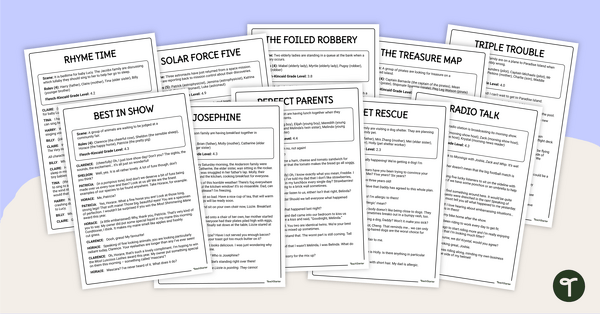
Scripts for Readers Theatre – Year 3 and Year 4
Bring your literacy lessons to life with scripts for readers theatre that boost student confidence and improve reading fluency.
- Plus Plan
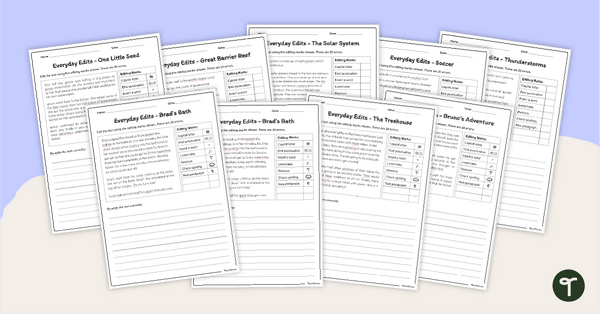
18 Editing and Proofreading Worksheets – Spelling, Grammar and Punctuation
Use these editing and proofreading worksheets to add daily editing practice to your lesson plans.
- Plus Plan
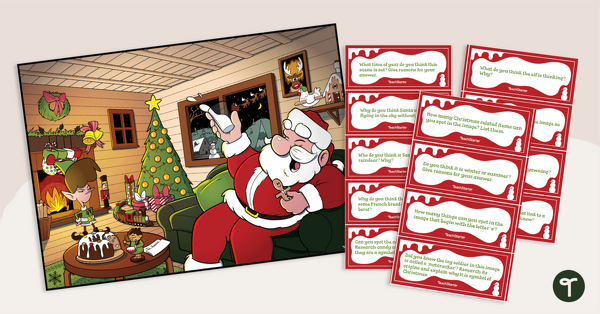
Christmas Picture Inferencing Task Cards
Use this festive image of Santa to engage your students with picture inferencing this Christmas, helping them build critical thinking skills through fun, visual clues.
- Plus Plan
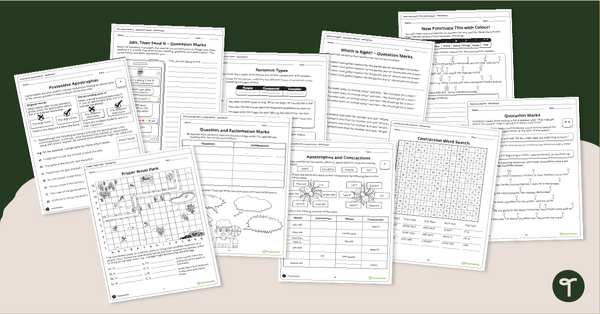
Perfect Punctuation Sheets – Booklet (3-5)
Use our Punctuation activity sheet booklet with 50 punctuation activities to practice a variety of grammar skills in the upper years classroom.
- Free Plan
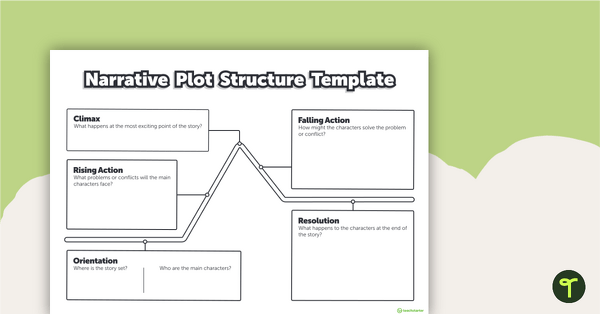
Narrative Plot Structure – Story Mountain Template
Use a story mountain template to help your students write narrative texts.
- Free Plan
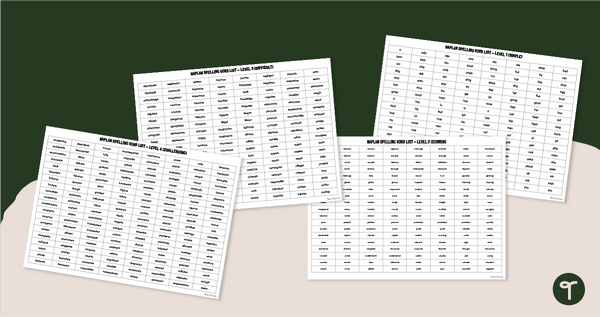
NAPLAN Spelling Reference List
Prepare your students for NAPLAN Language Conventions assessments with a printable NAPLAN Spelling Reference List.
- Plus Plan
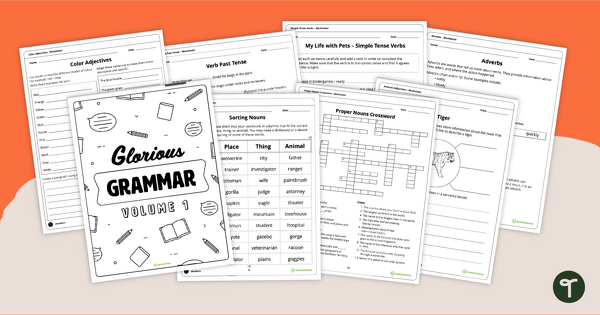
Glorious Grammar Volume 1 - Worksheet Book
50 activities in one booklet which all revolve around learning grammar in the classroom.
- Free Plan
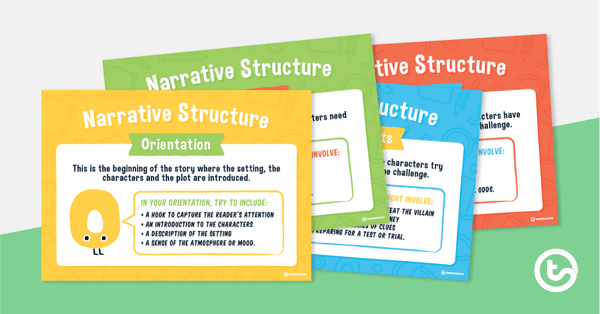
Narrative Text Structure Posters
Brighten your classroom and teach narrative paragraph structure with this set of 8 engaging posters designed to make narrative writing clear and fun for students.
- Free Plan
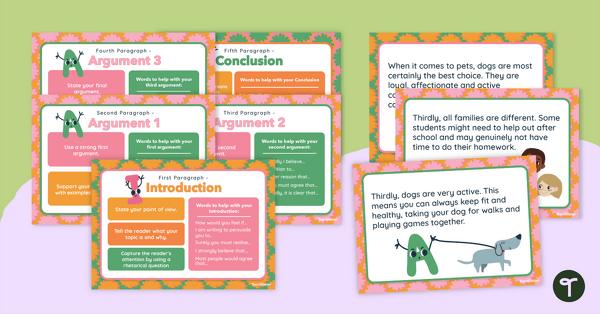
Persuasive Text Structure Posters
Explore the structure of persuasive writing with this set of 15 posters.
- Plus Plan
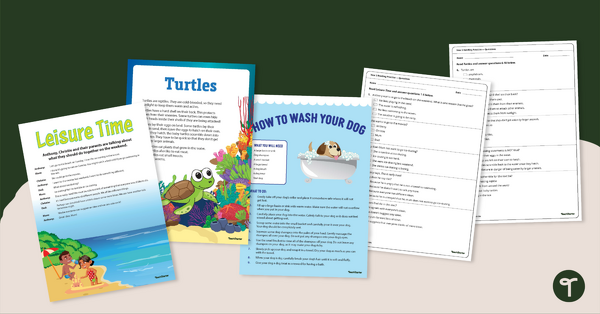
NAPLAN Reading Magazine – Year 3
5 reading texts with multiple choice questions for NAPLAN Reading Year 3.
- Plus Plan
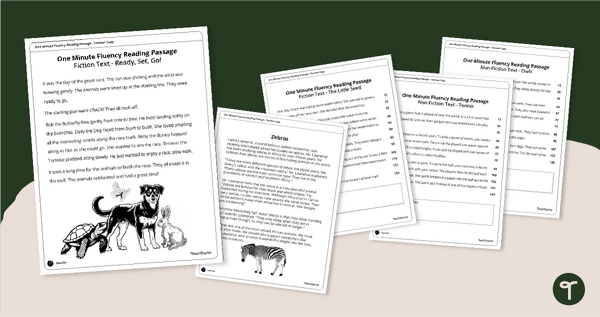
Year 3 Reading Fluency Passages
Assess student fluency with a printable pack of reading fluency passages for Year 3.
- Plus Plan
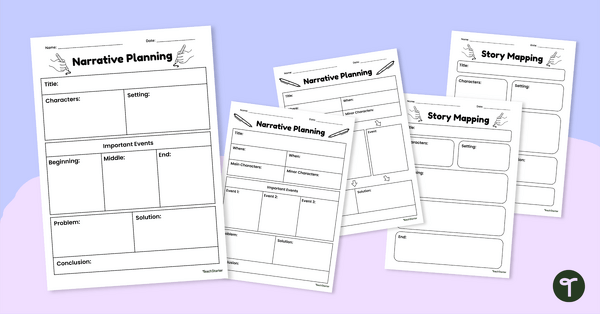
Narrative Writing Planning Template Pack
Use this narrative writing planning template pack to help your students plan a fantastic piece of writing!
- Plus Plan
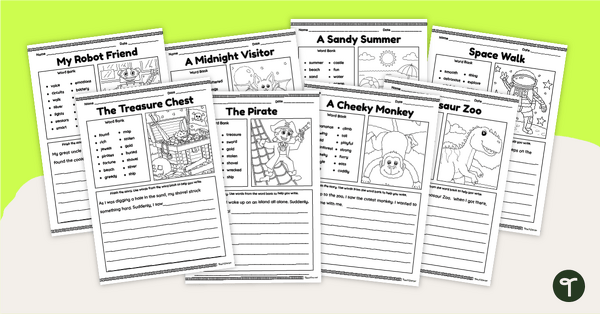
Narrative Sentence Starter Worksheets
Use our printable narrative writing prompt worksheets to boost your students' imaginative writing skills.
- Plus Plan
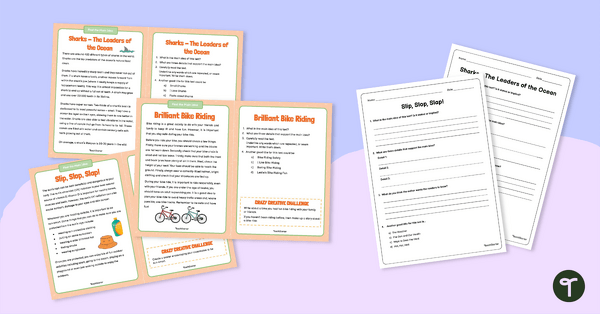
Comprehension Task Cards - Finding The Main Idea
A set of comprehension task cards to help students find the main idea when reading.
- Plus Plan
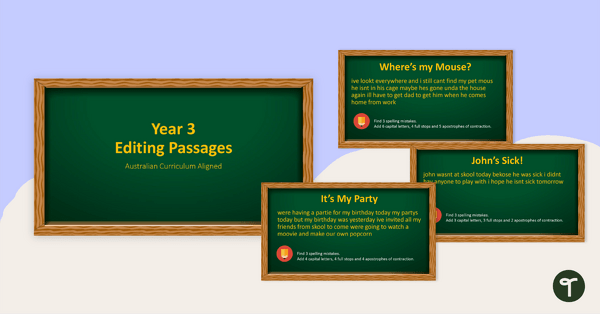
Year 3 Editing Passages
Use this set of Year 3 editing passages to help your students demonstrate their spelling, punctuation and grammar knowledge.
- Plus Plan
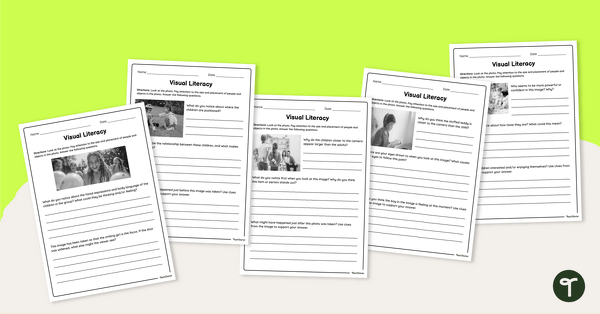
Visual Literacy Worksheets
Enhance critical thinking with visual literacy worksheets that guide students to analyse images, infer meaning and explore how pictures tell powerful stories.
- Free Plan
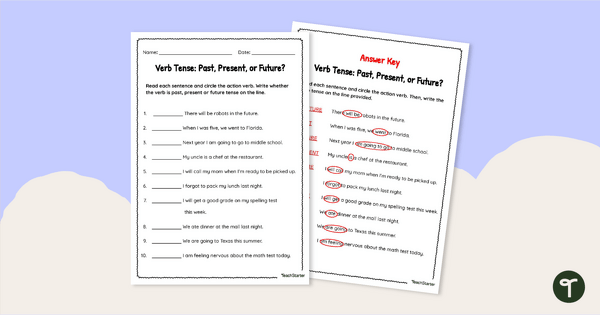
Verb Tense Worksheet
Provide students with additional verb tense practice with a past, present, and future tense worksheet.
- Free Plan
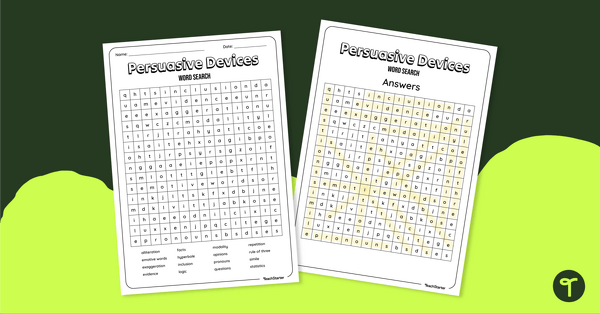
Persuasive Devices Word Search
Familiarise your students with the most common persuasive devices with a fun word search.
- Plus Plan
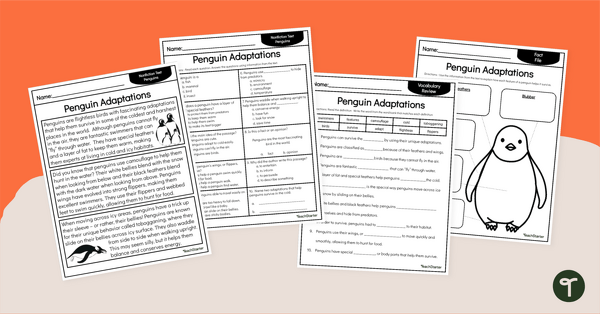
Penguin Adaptations - Year 3 Reading Comprehension
Explore the fascinating world of penguins and their adaptations with our set of printable Year 3 Reading Comprehension worksheets.
- Plus Plan
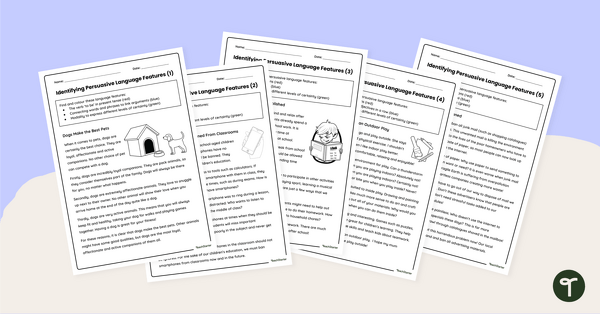
Identifying Persuasive Language Worksheets
Explore persuasive language with your students using this set of five persuasive texts on a variety of age-appropriate topics.
- Plus Plan
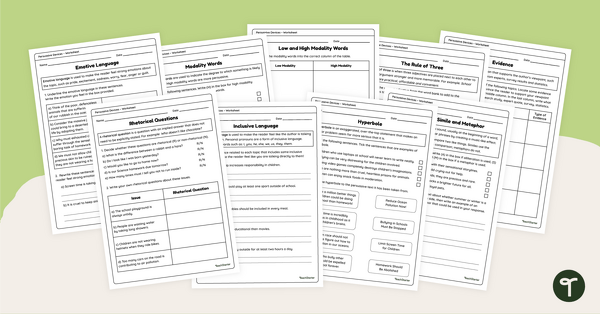
Persuasive Devices Worksheet Pack
Explore persuasive language techniques with your students using this nine-page worksheet pack perfect for your persuasive writing unit.
- Free Plan
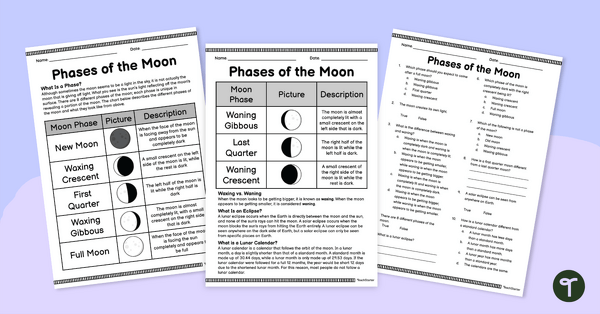
Phases of the Moon – Comprehension Worksheet
Analyse different moon phases and how their visual appearances change over time with this reading comprehension worksheet.
- Free Plan
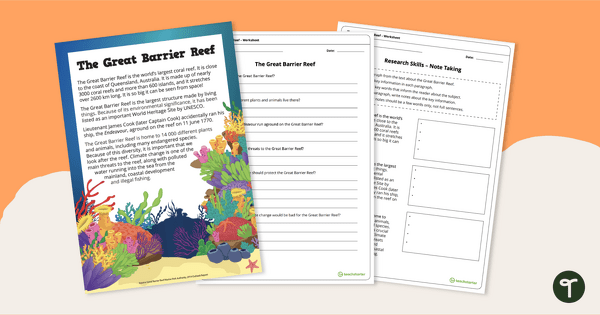
Great Barrier Reef Comprehension and Note Taking Worksheet
Learn about The Great Barrier Reef with a reading comprehension and note-taking activity.
- Plus Plan
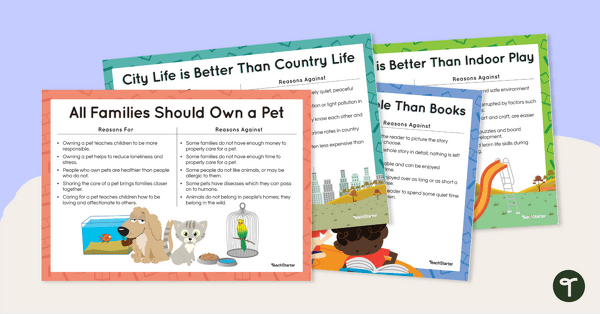
Persuasive Text Writing Prompts - Complete Set
A set of 5 persuasive writing prompts, covering a variety of topics.
- Plus Plan
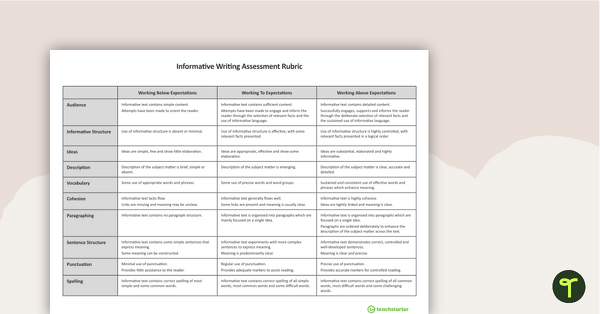
NAPLAN-Style Assessment Rubric - Informative Writing
A NAPLAN-style rubric designed to help teachers to assess students' informative writing.
- Plus Plan
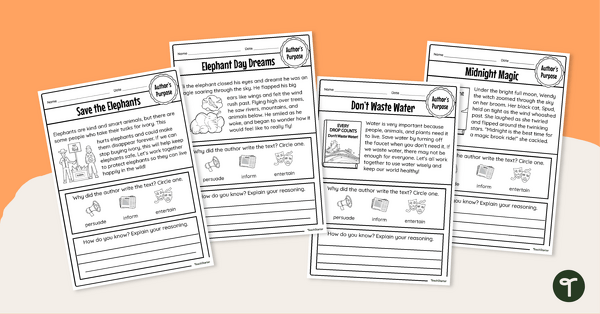
Author’s Purpose Reading Passages Worksheet Set
Explore the Author's Purpose in these reading passages with this set of Author's Purpose worksheets.
- Free Plan
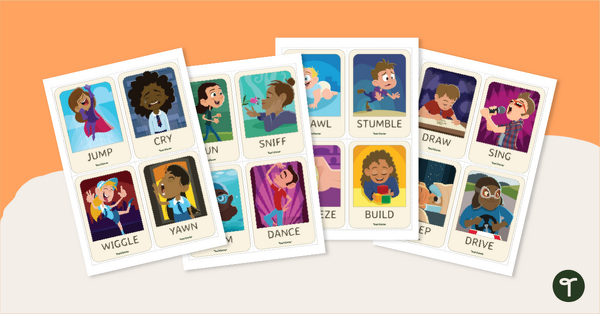
Verb Charades Active Game
Practise action verbs with this fun active charades game!
- Free Plan
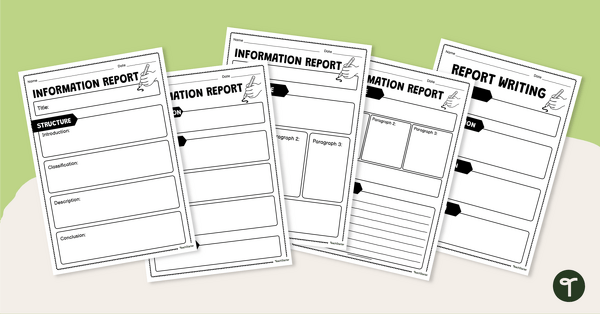
Information Report Graphic Organisers
Get your students to plan and write information reports with this set of 6 differentiated graphic organisers.
- Free Plan
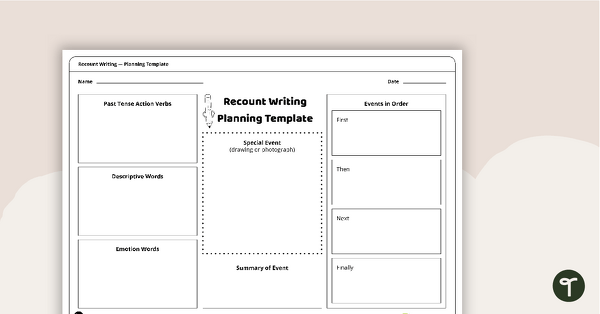
Personal Recount Planning Template
A template for students to use when planning a personal recount.
- Plus Plan
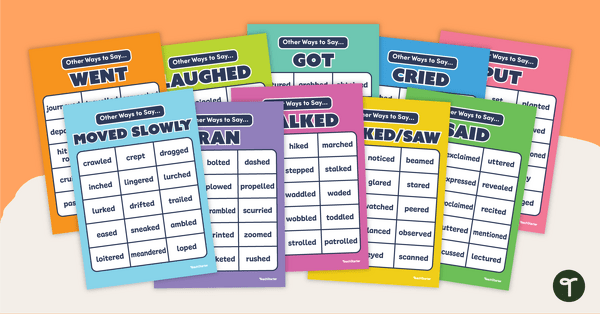
Vivid Verbs Poster Pack
Teach your students to omit boring, overused verbs from their writing with a classroom set of vivid verb posters.
- Free Plan
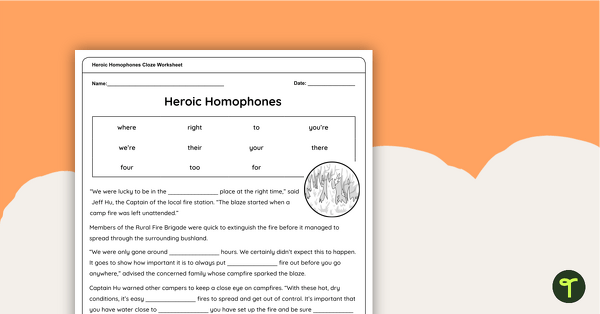
Heroic Homophones Cloze Worksheet
Help your students select the correct homophone to use in context with this one-page cloze passage worksheet.
- Free Plan
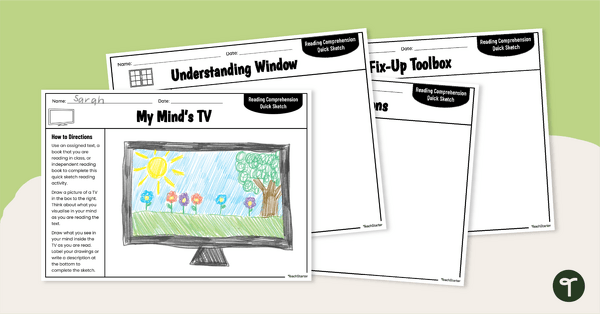
Reading Monitoring Comprehension Activity Pack
Explore easy ways to monitor comprehension with this quick draw activity pack perfect for primary students.